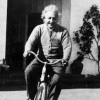Do kids burn out from sports that start young?
Do kids burn out from sports that start young?
My wife are considering letting our five year old daughter play competitive soccer. Our only concern is she has lots of time to play (even if she wants to now) and by starting so young it burns her out. Are there stats on burnout based on when a kid begins playing?Mind you this is only an opinion, I do not think that she will "burn out", if in fact there's lots of good foundation, patience, and all the things meant and intended for growth and development in that sport. Starting young can have an advantage, because things that are needed to be learned are learned early and can stay with the child and be accessible more readily. Of course one has to pay close attention to the child so as to "push" them according to their own rate of growth and not from some adult expectation. The fact is that some kids are naturally able to play sports, and that goes for girls as well as boys. Physical development through sports and athletics can carry anyone especially a child through many years of better health, vigor, and vitality. Of course at an early age one can only establish "the ground rules" so to speak, but the encouragements will last and last throughout their lifetime. Just for the record, most of your Professionals in whatever sport they are participating in started off at a young age. Aside from the emotional input that comes with competition, just getting enough exercise and finding something kids like to do for exercise, is a good thing. Hope she stays with it and gets all that she can from its participation.
I would recommend a trying a variety of sports before locking into any one sport. My kids are 4 and 6 and they have tried a little of everything through the gym to see what they are interested in first. I think kids change over time too, so she may like soccer this year and gymnastics next year.
- cjaroszposted 10 years ago
0
Here's what I think.
Sometimes "burnouts" come from starting young. She may get bored of it as she grows older.
However, I think giving a child a chance to play sports is a positive experience. It gives them good skills. She might come to love it and want to take it far. Making a dream to make it more than one it is.
You shouldn't hold back on letting her play. This will only show your lack of encouragement. You should encourage in everything she wants to do. Sports are a great tool for kids. It may lead to her being more active later in life.
Now is the time to let her try out sports and see what she likes. She may love it, or she may hate it. You never know unless you her a try. It could possibly become her passion. Just like it could possibly be one of those things, that she tries, she doesn't like, don't keep it up
I played soccer for 7 years. I was young when I started, but loves it after I started. Respectfully, I don't necessarily think that the right answer lies with "stats", because stats can say something like that 99 percent of kids do "x", but your daughter may be the 1 percent that won't do "x".
I think it's a matter of being truly open to assessing what a little kid wants, how enthusiastic she is, or whether she's kind of neutral but thinks it sounds like a good idea - mostly because most little kids think everything new sounds like a good idea.
There are parents who say they won't let their child quit anything. I don't think that's good if a child tries something and discovers she doesn't like it.
As with so many things in life that involve children, I think letting your child be the guide offers the best chance that she won't be at high risk of burning out from anything; because burn-out most often happens not because someone is kept busy or challenged with a lot of an activity, but because he spends too much time at an activity that isn't really something he's enthusiastic about - or worse, hates.
I have three kids now grown. My sons were involved in different sports but also other activities, but they didn't start as young as five because, for the most part, that wasn't the age little boys were starting baseball in our area.
My daughter, on the the other, was three when she wanted desperately to go to kindergarten. If the school hadn't changed the age to "full five" I would have only had to stall her off until she was about to turn five. Instead, she had to wait another whole year; and throughout her whole school "career" she always felt just a little older than the other kids and was never quite as challenged as she would have liked.
Same daughter: Started dancing school at three and loved it. She's twenty-eight today, working full-time, has a little business of her own, and has all kinds of other things keeping her busy; and she still makes sure she gets to dance with a "community/arts" dance company.
On the other hand, she tried T-ball at four or five, liked it OK, and decided she didn't want more baseball. She asked for violin lessons as well.
I really believe that letting your child and your own common sense and understanding of her - not stats - be your guide is what will most likely reduce or eliminate the chances that she'd burn out. When the "enthusiasm light" gets extinguished in a child's activities it's pretty easy to notice that. My own feeling is that that happens long before any burn out might.That's a great comment. I was wondering if kids have a certain number of playing years in them, and no matter what age they start at, do they typically play a certain number of years. Or do kids that start early play longer or shorter on avg?
I think people who find an activity that suits their nature well don't tend to have a limited number of years. I do think, though, that readiness at the time of starting can "make or break" the child's interest. "Naturals" tend to be ready sooner.
This too is a great question. As you may know in Pro Sports not many at all are playing at 65 or even 50. I'm sure most of them played when they were young. Now don't get me wrong that at age 50 or more they still know, play, and love the game.
I don't have a stat but I can share our experience. Our son started a 1-hour a week gymnastics class when he was four. Mainly we just wanted him in an activity that keep him limber and was stress-free. After two years, they were forming a boys team so we signed up for that as our son was enjoying the experience. He then competed for 5 years and did very well at each level. But this put him at the junior high age and he was then going to the gym 5 days a week for 3.5 hours a day, plus travel time. He had no time to socialize or be involved in other things. He was dedicated and did not complian. The meets took us to several areas of our region and cost a lot of money but it was worth it. He finished on top, taking #1 in the state in his age group and #2 in our region and suddenly decided he wanted to be involved in sports at school. So we let him "retire". It was a good decision for us and that is how you have to look at it. Not for him alone, not for the parents alone, for all involved. He is very happy in high school and some times wonders how it would be if he would have stayed in the sport, but is OK that he did not. Weigh the pros and cons and make a very careful decision, not done in haste.
Paul, as a youth sports coach over the last 8 years, I would say that it never too early to get your kids involved in sports. Mine both started T-Ball at 6. I coach baseball, rec league softball and travel softball, as well as boys and girls basketball. I stress the fundamentals, with an emphasis on "fun". As long as you don't push your daughter too hard, she will be fine. I would suggest that you expose her to several different sports, so that she can choose the one or two tht she enjoys the most. She may excel at one more than the others, or maybe she isn't a star, but just likes being part of a team and having fun. Some kids burn out, but they are not the norm. And in those cases, I blame it on overbearing parents. There is nothing worse than a parent who wants to win more than their kid. Just ask her what she wants to play and sign her up. You can encourage her, coach her, or just let her find her own way in the youth sports world. I really do think sports are a great teaching tool for kids in all areas of their development. Good luck.
Coach BobWay late to this party but this is something I feel very strongly about.
I am concerned about the word competitive. At age five there should be no real competition. It's fun to win, it's awful to lose but it's not the real reason to start a child at that age. This is where they learn the rules and decide if they want to continue. It's where they learn teamwork but it needs to be fun.
The biggest problem with youth sports is the parents. It's their agenda that get in the way. The only time to put a child into sports is when they express an interest. I hear parents say all the time how well they did in youth sports although their child is much happier with a book. Parents who insist that their child continue makes them hate all sports.
My son started baseball at age 4. He wanted to play. He's 13 now and plays baseball year round. In fact, he is recovering from a broken leg from last season and spent the whole summer whining about not being able to play. We constantly ask if he still wants to play and the answer is always the same. Should he change his mind, he is free to stop at any time. He won't, he wants to own the Dodgers.
Burnout comes from competing too early, parents who insist they play even when they don't want to, and sometimes the coaching when it is not appropriate for the age of the child.
Stats are great but can't be applied to children. There are too many variables.
I hope you gave your daughter the opportunity to try soccer. I hope she liked it but if not, there are many other opportunities.
Related Discussions
- 32
Should young teens date older guys?? For example 14 age girl 18 or over age guy
by Audrey Selig 2 months ago
Should young teens date older guys?? For example 14 age girl 18 or over age guy?
- 10
Why are kids starting to be "deflowered" so young? Are these kids doing well in
by Nspeel 12 years ago
Why are kids starting to be "deflowered" so young? Are these kids doing well in school and life?
- 33
General thoughts about the 16 year age limit on sex, right or wrong?
by Dear_hubs 13 years ago
It has been a gray area for a long time that in the UK, sex below the age of 16 is illegal and many frown on it. I'll be honest, I lost my virginity at 15, however I am not a criminal, I have lead a community driven life and am a law abiding citizen.In this day and age, children are exposed to sex...
- 7
What's wrong with a girl 17 years of age dating a 22 year old guy?
by Brinafr3sh 4 years ago
What's wrong with a girl 17 years of age dating a 22 year old guy?Would you be concerned if the girl age 17 was your daughter?
- 17
At what age does candy become appropriate for a child?
by Peeples 11 years ago
At what age does candy become appropriate for a child?My 20mth old daughter has never had any type of candy. I am now getting "that's mean" "you're not being fair to her" and several other things from a family member. I let my first two children have candy from a young age and...
- 41
Could you love someone who admitted to seriously disliking your children from a
by Karen Ranoni 9 years ago
Could you love someone who admitted to seriously disliking your children from a previous marriage?I just read a hub called "Why Nice Women Don't Like Step-Kids". This woman admits she hates her step children and I'm just curious- 1.If you found out your partner secretly hated your child...













